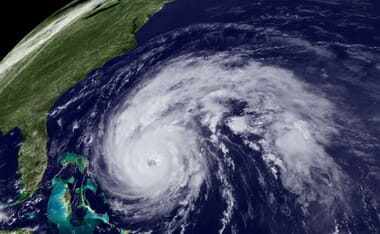Ron DeSantis absolutely nukes a reporter who tried to tie yesterday’s tornadoes from Hurricane #Milton to global warming — Via Curtis Houck
WATCH:
First, let us remember how the predictions failed, which is good news:
- It should also be remembered that not long ago the U.S. experienced an “unprecedented” 11-year drought in major hurricane strikes. That significantly impacts our perception of what is “normal”. When the lull had reached 9 years, a NASA study found such an event was a 1-in-177-years occurrence. As I recall, that was increased to 1-in-250 years when the lull reached 11 years. (Dr. Roy Spencer)
This post is to be a reference for me when I hear stuff like this:
BILL NYE:
Well, so we claim on our side of it — we claim that we have enough energy to take care of everything right now if we just could apply it, and so the longest journey begins with but a single step. We will phase out fossil fuel use, and they will — we will phase in renewable energy, but just when it comes November 5th, everybody, you’ve got to vote for the Democrats. I’m doing my best here.
For many years, I’ve been head of an organization that we work very hard to be political but not partisan in space exploration. Be that as it may, right now, the choice is clear. So you can, everybody out there, you can hate me, you can hate him, you can hate everything, but when it comes to doing something about climate change, you got to vote for Harris-Walz. And that’s what Too Hot Not to Vote is all about.
MSNBC brought on “hurricane expert” Bill Nye to provide analysis on Hurricane Milton.
His message on how to stop hurricanes: Vote for Kamala. pic.twitter.com/84NaPNc6MH
— johnny maga (@_johnnymaga) October 8, 2024
MICHAEL MANN
- And we’ve got an upcoming election here where we’ve got a stark choice before us. We have a candidate on the one side who denies that climate change is real — calls it a hoax. We’ve got a candidate on the other side who recognizes that this is one of the great threats we face and will try to build on the progress that we’ve already made in trying to do something about the problem.
See more at NEWSBUSTERS & OUTKICK
What is the truth of the matter? Nothing to see here, move along. This is business as usual, in other words.
DR. ROY SPENCER:
… Florida Major Hurricane Intensity & Number
The following plot shows the intensity of major hurricanes (100 knots or greater maximum sustained wind speed) striking Florida since 1900, updated through recent (2024) Hurricane Helene:
As can be seen from the linear trend line, there has been no significant trend in the intensity of major hurricanes striking Florida since 1900.
The following is via WATTS UP WITH THAT!
“Rather, the damage Milton wreaks in Tampa Bay, or wherever it ultimately makes landfall, will be the only unprecedented thing about it and that is not due to changed climate conditions but rather changed demographics. There is simply more people, property, and infrastructure in and around Tampa Bay than there was when similar hurricanes made a direct strike on the city in 1921 and 1848 – 103 and 176 years of global warming ago respectively.
“In 1921, Tampa Bay’s population was 135,000. Now it sits at more than three million. Hopefully, most people will heed the early warnings afforded by available technology and get out of harm’s way so fatalities, if any, will be low. But you can’t move homes and infrastructure, so the damage will be quite high – not due to the changing nature of hurricane, but to the expanding bulls-eye effect: more people and stuff in harm’s way means more damage.
“While many in the media have been painting Hurricane Milton as ‘unprecedented’ with it being ‘juiced’ by climate change, a review of the factual record and scientific literature say otherwise. Tampa Bay has experienced major hurricanes in 1848 and in 1921, well before climate change was ever conceived.
“Further, the Intergovernmental Panel on Climate Change (IPCC) in their most recent report showed clearly, they found no signature of climate change affecting hurricanes in any way. Milton’s 897mb lowest pressure isn’t even unprecedented, being the fifth lowest on record. While Milton remains dangerous, the attempt to paint it as a monster driven by climate change just doesn’t hold up under scrutiny and is unhelpful to those affected.”
“The Tampa Bay area has been hit by mega-hurricanes at least twice before (1848 and 1921), there is no trend in hurricanes hitting Florida, no aspect of hurricanes is outside the range of natural variability, and it’s impossible for emissions to affect hurricanes in the first place since emissions physically can’t warm the oceans. Blaming hurricanes on emissions is an absolutely bankrupt claim.”





